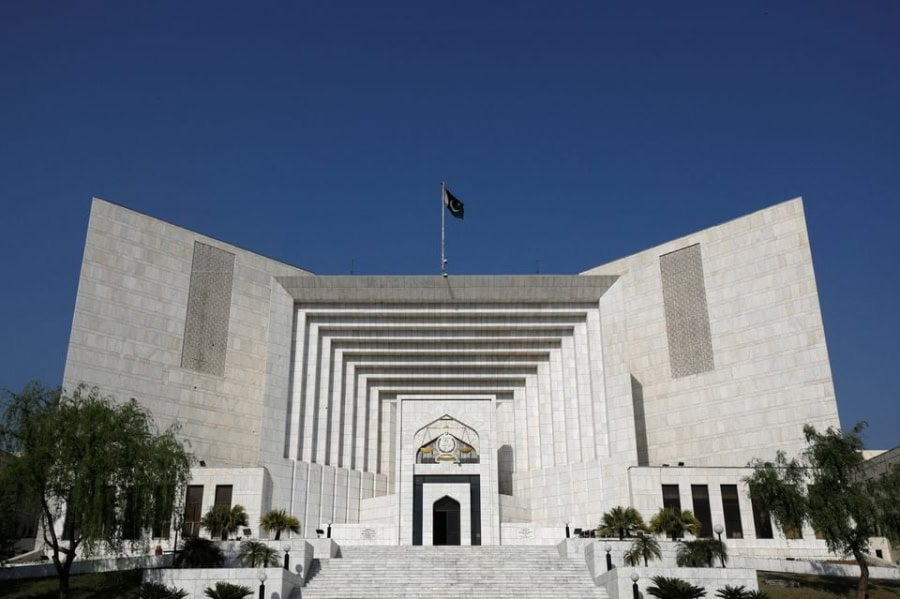ISLAMABAD- The Supreme Court of Pakistan on Wednesday declared the government’s fact-finding committee on Faizabad sit-in as illegal, observed that it wanted to know the real mastermind of the sit-in.
A SC three-member bench headed by Chief Justice of Pakistan Qazi Faez Isa made these remarks while hearing a case related to Faizabad sit-in. Justice Aminuddin Khan and Justice Athar Minallah were the other members of the bench.
During the hearing, the CJP remarked that “Absar Alam leveled serious allegations against an officer under Ministry of Defense.
“Do you still want to withdraw the review petition in the case?,” the top judge asked AGP Mansoor Awan.
The AGP said that the allegations made by Absar Alam would be examined by the fact-finding committee, to which Chief Justice inquired about Absar Alam’s position during the Faizabad sit-in.
The AGP said that he was the chairman of PEMRA at that time.
Justice Isa asked, “When did the federal government establish the fact-finding committee?” Attorney General replied that on October 19, the federal government formed the committee, which would conduct a comprehensive review and submit a report. The CJP asked, “Has the committee not done anything so far?” To this, Mansoor Awan said, “The committee had a meeting on October 26,”.
The Supreme Court posed questions to the fact-finding committee established by the federal government regarding the Faizabad sit-in judgment.
Justice Athar Minallah asked, “Under which law was the fact-finding committee formed, and what is its legal status?” The CJP remarked, “The committee was created only to produce reports; there is nothing more to it,”.
The bench remarked that they would not accept the report of the committee.
“Why should the court work on this? Implementing the Faizabad sit-in judgment is the government’s responsibility. What will they do? How many times were they rescheduled? How much damage was done? Who will see all of this? Who is responsible for Faizabad sit-in?,” asked the bench.
Attorney General Mansoor Awan stated that the government established the committee for the purpose of conducting an inquiry. In response the CJP said, “The committee is just a piece of paper; a country cannot be run with just a piece of paper. Tell us which rules of business and under which law this committee was formed. The government should not operate in this manner. A committee set up only to write reports is not acceptable. The committee’s report should be presented in the Cabinet; it should be brought to the court for action,”.
He further remarked, “In this way, everyone will say that whatever they do, no one can question them. If the government directly says that they won’t work, why should we do anything?” Justice Athar Minallah questioned, “Are state affairs being conducted in accordance with the constitution?” Meanwhile, Justice Faiz Isa asked, “Based on the TORs of the committee, it seems like you have exonerated everyone. Who was responsible for the Faizabad sit-in? The court has already provided the entire history. We asked, who was responsible for the sit-in?”
Chief Justice of Pakistan emphasized that the government must take action to ensure that such incidents do not happen again in the future by learning from the past. When those who break the law are penalized, people would learn a lesson.
Justice Faiz Isa asked, “Does the government genuinely want to act on the Faizabad sit-in case? Which law says that implementation on a decision will not occur when a review petition is pending? What the government did with those who came from Canada for sit-in and then returned there? Can people come from Canada to hold sit-ins here? No one will ask any questions? Can Pakistani citizens living in Canada come here to stage sit-ins? Other countries protect their citizens; in Pakistan, nobody cares. No matter what you do, sometimes in Dubai, sometimes in another country, our people are defaming both the nation and religion.”










